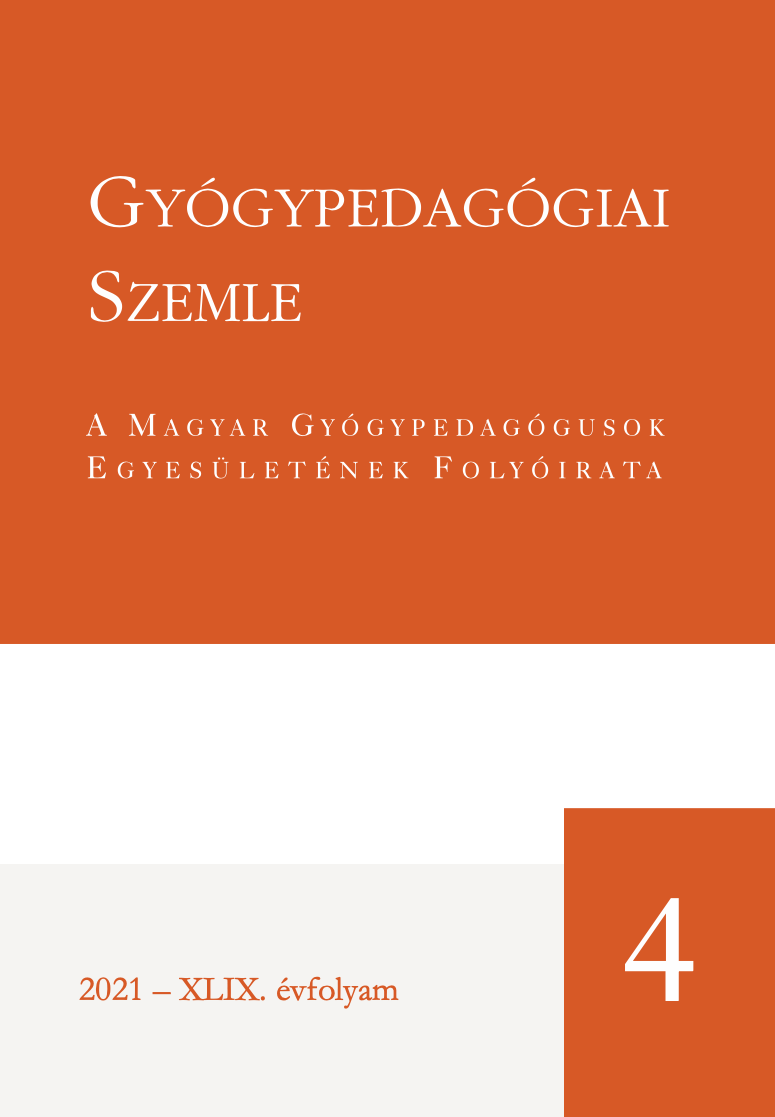From „weak talent” to mild intellectual disability: significant conceptual changes - Past and present
DOI:
https://doi.org/10.52092/gyosze.2021.4.3Keywords:
students with “weak talent”, special schools, terminology, classificationsAbstract
In the second half of the 19th century, the dysfunctional operation of Hungarian public education was strongly present in the field of education of students with mild intellectual disabilities, expressed in terms of “weak talent”. The special education courses for “weak talented” children in Hungary, established in the first half of the 20th century, for special school teachers can be considered as answers to this social phenomenon. As a result of all this, the issue of educating special school population came to the attention of contemporary pedagogical discourses. This process has increasingly raised in professional circles the question of who are among the “vulnerable” students.
The aim of this study is to analyze the concept and classification of “weakness”. It examines who, according to the scientific conception of the age of dualism, professionals have classified into this student population and on the basis of what symptoms. In addition, it attempts to make a comparative content analysis of contemporary and current professional terminology in the classification of intellectual disability. The topicality of the topic is shown by the fact that the contents of the basic concepts of special education are constantly changing even today (eg Csákvári and Mészáros, 2012; Mesterházi, 2019). When we live in a period of conceptual change, in our view, its past, its contexts so far are worth reviewing.
The research is interdisciplinary, the discussed topic is related to the research on the history of education and special education (Mrs. Gordos, 1962, 1963, 1988, 2001; Ellger-Rüttgardt, 2019). The methodological background of the research is characterized by the fact that we applied the classical source exploration, analysis, interpretation and interpreting method by analyzing the pedagogical discourses that appeared in Hungary in the age of dualism. During the research, primary sources (journal, textbook, pedagogical draft, curriculum) were used. Based on the analysis of the text constructions, we performed the description, interpretation and comparison of contemporary and basic concepts and phenomena used today.
The analysis of the content elements of the conceptual analysis contributed to the conclusion of the contemporary internal pedagogical thinking processes on the basis of the external representations appearing in the concepts. The interpretive framework for the descriptions of “vulnerable” children was provided primarily by medical and pedagogical approaches, which mainly drew attention to the pedagogical aspect of health.
The study may provide a basis for exploring the history of the professionalization of efforts to educate students with mild intellectual disabilities in the history of education and special education. It can contribute to the study of the institutional history of the establishment and development of special schools.
Keywords: students with “weak talent”, special schools, terminology, classifications

